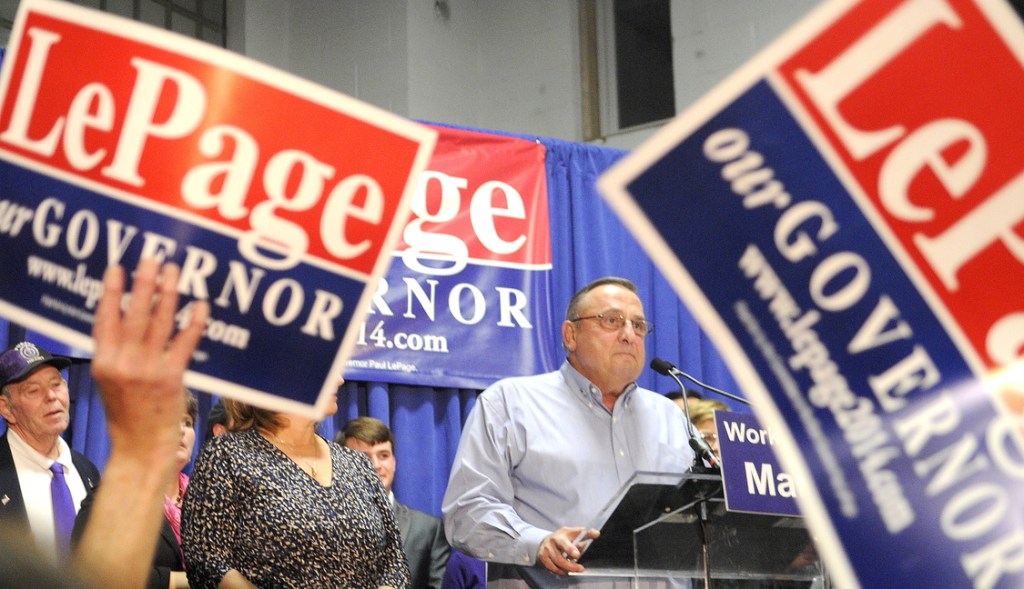Gov. LePage kicked off his campaign for re-election this week, casting himself as a man who wants to be known for his actions, not for his words.
Given his history of making statements that are outrageously offensive or wildly inaccurate, it’s easy to see why he would want to put his infamous oratory in the background. But he is right that the state has already paid far too much attention to the governor’s words, and far too little to the policies that he has championed and their negative impact on the people of the state.
The record that the governor wants people to pay attention to includes his signature tax cuts, streamlining regulations and welfare reform. What they will find when they dig in is that Maine’s tax burden has shifted from the wealthy to the middle class; his regulatory reform ideas were rejected by a Republican-controlled Legislature and replaced with a bipartisan package; and what he calls “reform” means shifting responsibility from the state to the local governments and non-profit service providers.
The 2011 tax cut is the governor’s signature policy achievement, and he proudly says that he cut everyone’s income tax, releasing thousands of low-income Mainers from paying any income tax at all. But that’s not the whole story.
The cuts spread their benefits disproportionately across the income spectrum, with families earning $355,000 a year or more getting a $2,800 break, while those earning $14,246 or less are getting just $7 to spend.
But in exchange, everyone will have to pay higher property taxes, which disproportionately affect low- and moderate-income households. According to a 2012 study by the Maine Economic Policy Center, the bottom 40 percent of Maine households pay more in total taxes after the LePage tax cuts, while the highest-income households pay less. And that has been made even worse by an increase in sales tax that takes a bigger bite the less you earn as a percentage of income.
This might not matter as much if Maine’s economy were growing faster. Gov. LePage did not create the recession, but he has not done enough to bring Maine out of it. While Maine has lagged New England and the nation in job creation, the governor refused to spend voter-approved infrastructure funds, vetoed a research and development bond and orchestrated the departure of Statoil, an international energy giant that was prepared to invest $120 million in the state.
And for purely partisan and ideological reasons, he rejected federal Medicaid expansion funds that would have pumped $286 million into the state economy and provided health insurance for up to 70,000 Mainers.
Fortunately, this will be a long campaign, and there will be time for the governor’s record to be carefully reviewed. He will be asked to answer for the state’s low rate of job creation, increasing poverty – especially among children – and our inability to attract a younger workforce or keep talented Maine kids from leaving the state.
These are the actions that Gov. LePage will have to answer for. By the end of it, he may wish everyone was still talking about his words.
Send questions/comments to the editors.



Success. Please wait for the page to reload. If the page does not reload within 5 seconds, please refresh the page.
Enter your email and password to access comments.
Hi, to comment on stories you must . This profile is in addition to your subscription and website login.
Already have a commenting profile? .
Invalid username/password.
Please check your email to confirm and complete your registration.
Only subscribers are eligible to post comments. Please subscribe or login first for digital access. Here’s why.
Use the form below to reset your password. When you've submitted your account email, we will send an email with a reset code.